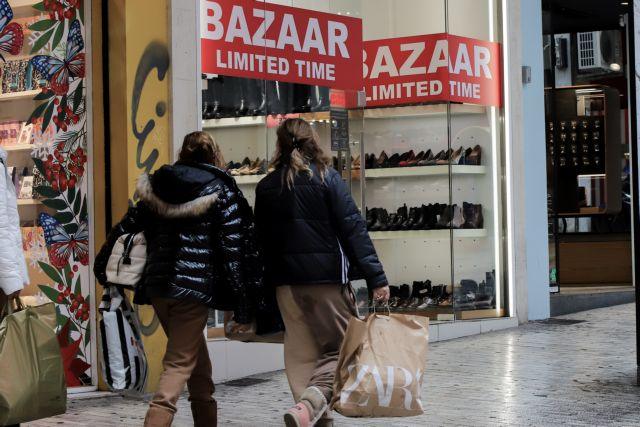Significant increase in household expenditure on groceries in 2020, however a total decrease of 10% in the last decade is reflected in the Family Budget Survey of ELSTAT prepared by consumer institute IELKA.
According to the studies, food expenditures represent 23% of household expenditures, while it is noteworthy that in 2020 there was a significant reduction of 33% in expenditures for dining out due to the lockdown to limit the spread of the pandemic.
In particular, there is an increase in food expenditure in 2020 compared to 2019 by 3.88% from 3,351.36 euros per household to 3,481.56 euros.
The increase was even higher for alcoholic beverages by 17.67% as well as for household goods (eg detergents, stationery, etc.) by 11.24%. On the contrary, the items of individual decency (eg items of personal care) showed a decrease of 9.51% and especially the focus of 33.45%.
In total, expenditures for food (cumulative food and food service markets) decreased in 2020 by 7.22%, from 5,478.12 euros to 5,082.84 euros.
Despite this increase, over the last 10 years 2009-2020, the expenditure of homes on food and non-alcoholic beverages has decreased by 10.28%.
Of course, in the 4 years (2016-2019) the per capita expenditure of households on food and non-alcoholic beverages increased from 1,337 euros per capita in 2016 to 1,388 euros in 2019, a change of 3.83%, to which was added the increase 2020 to 1,449 euros and an overall increase of 8.36%, which was completed in a stable price environment, as the consumer price index from 2016 to 2020, remained virtually unchanged over a period of 5 years.
It is worth noting, however, that while household spending on groceries in value remains lower than at the beginning of the previous decade, spending as a percentage of total household purchases has increased.
In 2009 the expenditure on food items corresponded to 17.3% of the average household purchases, while in 2020 it corresponded to 23.1%, ie it increased by 6%.
In practice, while the cost of groceries decreased, other costs (eg clothing, furniture, services) decreased even more. This trend became more pronounced in 2020, when food expenditure increased, while total household expenditure decreased by 9.90%.
This development is to some extent to be expected, as most of the grocery products and especially the food items serve the basic needs of the consumer and are therefore more difficult to cut in times of crisis.
Differences among households
At the same time, there are significant differences in the increase in annual food expenditure between different types of households. Larger increases are recorded mainly in households with 1 child up to 16 years, in couples with 1 child by 11.82% and in single-parent families with 1 child by 7.78%, as well as in households with 1 person up to 65 years by 7%.
More cooking at home
Regarding 32 sub-categories of products, in most cases (27) there is an increase with more pronounced increases in beverages. A decrease is recorded in only 5 categories, mainly the categories of meat (with the exception of pork) and milk.
In practice, it is confirmed that consumers cooked more during the lockdown period which led to an increase in household spending on raw materials for its meals. The effect of closed focus on these trends is clear, as especially in the case of alcoholic beverages, consumption outside the home has been replaced by consumption within the home.





































